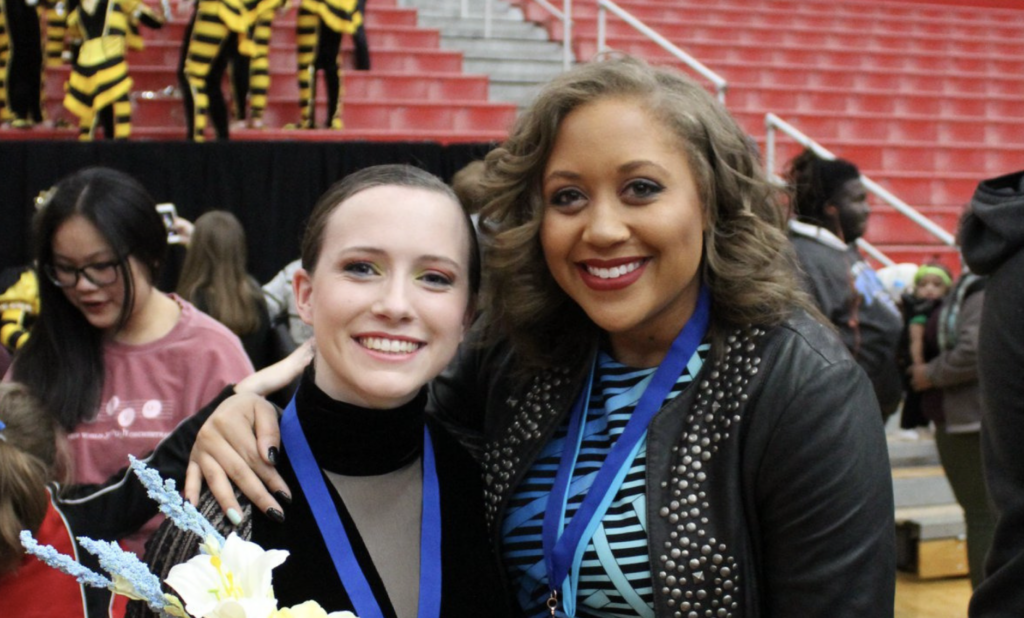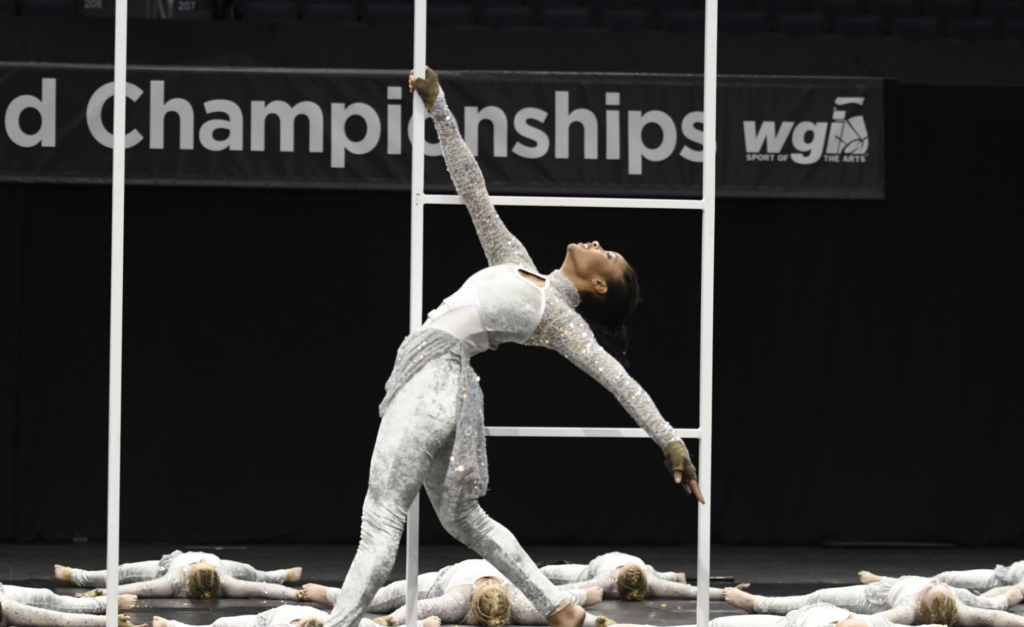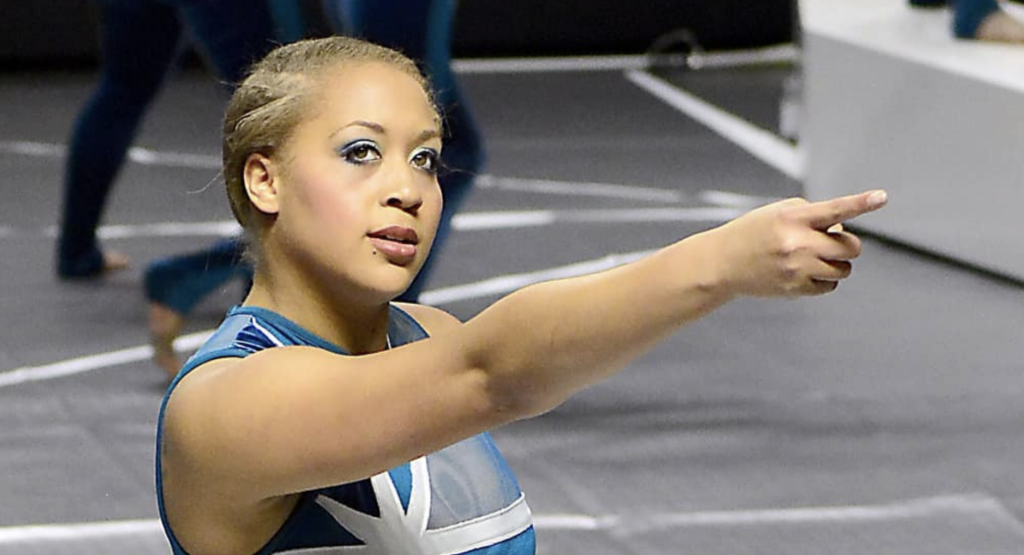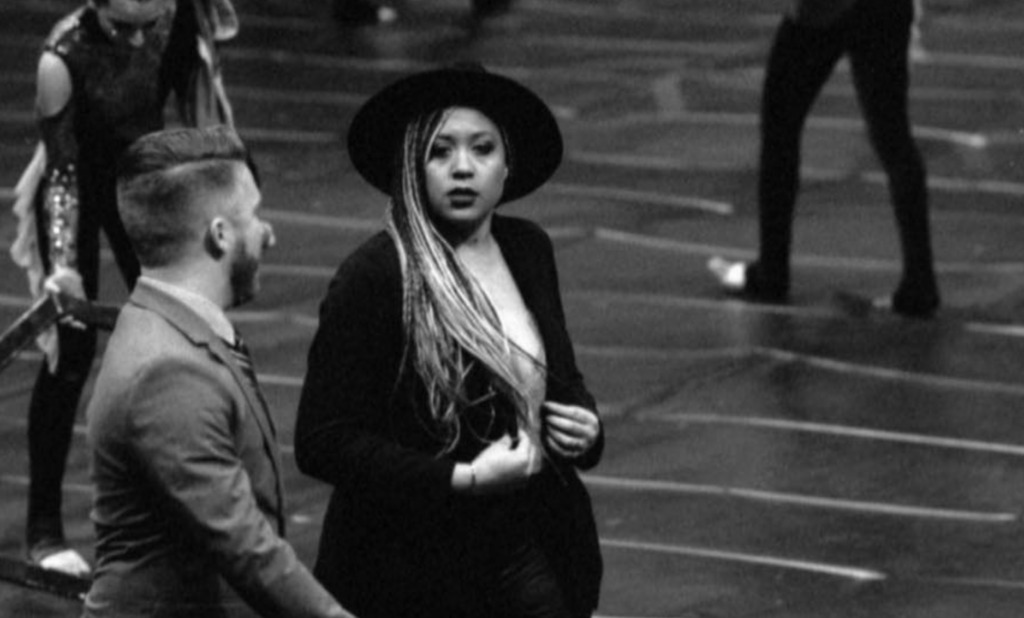By Kellie Finch
“Being Black, living Black, comes with so many beautiful things. To be able to share that with other people, but also to see people appreciate that, that’s just incredible. It allows you to be seen for who you are: the people who came before you, and the people that are going to come after you. All of the beauty and tragedy. All of that. The entire story.” – Lex Holland-Albaugh

Growing up, Lex Holland-Albaugh learned how to adapt.
With their parents in the Air Force, Holland-Albaugh moved around frequently. There was no time to settle in one place before packing up and heading for the next.
This was full of excitement and new memories, but it also meant Holland-Albaugh was the new kid everywhere they went. It became especially challenging when their family ended up in Misawa, Japan when they were eleven years old, now with a language barrier to complicate things further.
Holland-Albaugh used dance as an outlet, becoming the first American allowed to audition for the Misawa Ballet Company, where they danced for three years. Holland-Albaugh spent a large portion of that time learning choreography with only their eyes, until they learned enough of the spoken language to listen.
Gaining new perspectives on learning factored into Lex’s artistic career years later, both as a dancer and an instructor. They studied dance and English at Southern Illinois University-Edwardsville, before teaching color guard with a variety of ensembles, including their current positions at Center Grove High School in Greenwood, Indiana, and the Phantom Regiment.

I Can Do That
In beginning their teaching journey, particularly in doing so as a Black artist, Holland-Albaugh looked to several of their former teachers, mentors, and coworkers for guidance. One coworker was Marlita Matthews, whom Holland-Albaugh taught with at Center Grove.
“I learned so much about the approach to students and approach to teaching that is priceless,” Holland-Albaugh said.
Other prominent influences included one of Holland-Albaugh’s high school instructors, Keith “Ping” Dawson, who passed away in 2021. Being around these prominent Black influences and learning from them was incredibly impactful, Holland-Albaugh said. They often found things they loved in their mentors’ teaching styles and applied them to the way that they taught their own students, gaining inspiration for their own personal journey at the same time.
“I think being Black in the activity and being able to see people that look like you, it kind of gives you this unconscious realization,” Holland-Albaugh said. “You don’t really realize it until later, like, ‘Oh, I can do that’ or like, ‘Of course I can do that.’”
This feeling is incredibly validating, Holland-Albaugh said. At its core, it validates who you are.
“You don’t have to change, because they didn’t have to change,” Holland-Albaugh said. “They are who they are, and so you can be who you are, and just be successful.”

Bigger Than People on a Field
When Holland-Albaugh began teaching, they did not necessarily set out to become the next mentor for young Black performers, they said. However, the reciprocated knowledge and mutual appreciation they have for their students has developed naturally over time.
“To be able to see people that I’ve taught and know that I’ve had some kind of positive impact on them, that is something I don’t really think I could even put into words,” Holland-Albaugh said.
They frequently encourage their students to leave their time in the marching arts with more than just musical knowledge. Performing in any capacity can teach you things that have nothing to do with performing, they said.
“You think you’re learning about musical notes, you think you’re learning counts and dance choreography and all of this stuff, but in reality, it actually is teaching you about life,” Holland-Albaugh said.
“Learning not to take experiences like the marching arts for granted is crucial because of this,” Holland-Albaugh said. “If you let yourself, you can end up learning valuable lessons about yourself and the world.”
“The marching arts is so much bigger than people on a field,” Holland-Albaugh said. “That’s why I think it’s so influential to people because you don’t realize how big of a deal it is until after it happens.”

You Are Your Own Style
Be who you are. This is the advice Holland-Albaugh lives by and shares with their students. Do not stray away from what makes you special, they said, because it’s special for a reason.
“Don’t try to be anything or anyone but who you are,” Holland-Albaugh said. “You are your own style.”
It takes time to figure out who you are, both as a performer and as an instructor, Holland-Albaugh said. Don’t change how you approach the activity just to fit someone else’s mold.
“Everybody appreciates other things,” Holland-Albaugh said. “You just have to appreciate what you bring to the table too.”
The beauty of the marching arts, and WGI as an outlet for that, is its ability to facilitate community, Holland-Albaugh said. Everyone can be somebody, regardless of their make-up, upbringing, or person.
“To be a part of a community where everybody knows what you do and what this is, you feel like you matter,” Holland-Albaugh said. “You mean something, because you are a part of this.”
About the Author:
Kellie Finch is an undergraduate student at the University of North Carolina at Chapel Hill pursuing her BA in Media and Journalism through the Hussman School of Journalism and Media. At UNC, she is a member of the Marching Tar Heels in the tenor saxophone section. She participated in WGI winds during all four years of high school playing the alto saxophone, where she discovered her love for music and the activity through her experiences and the people she met.

